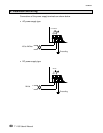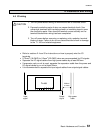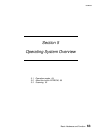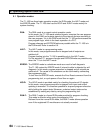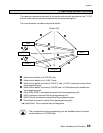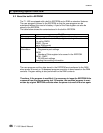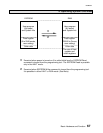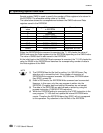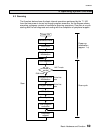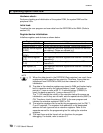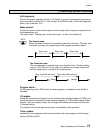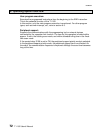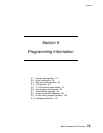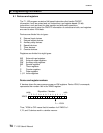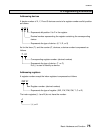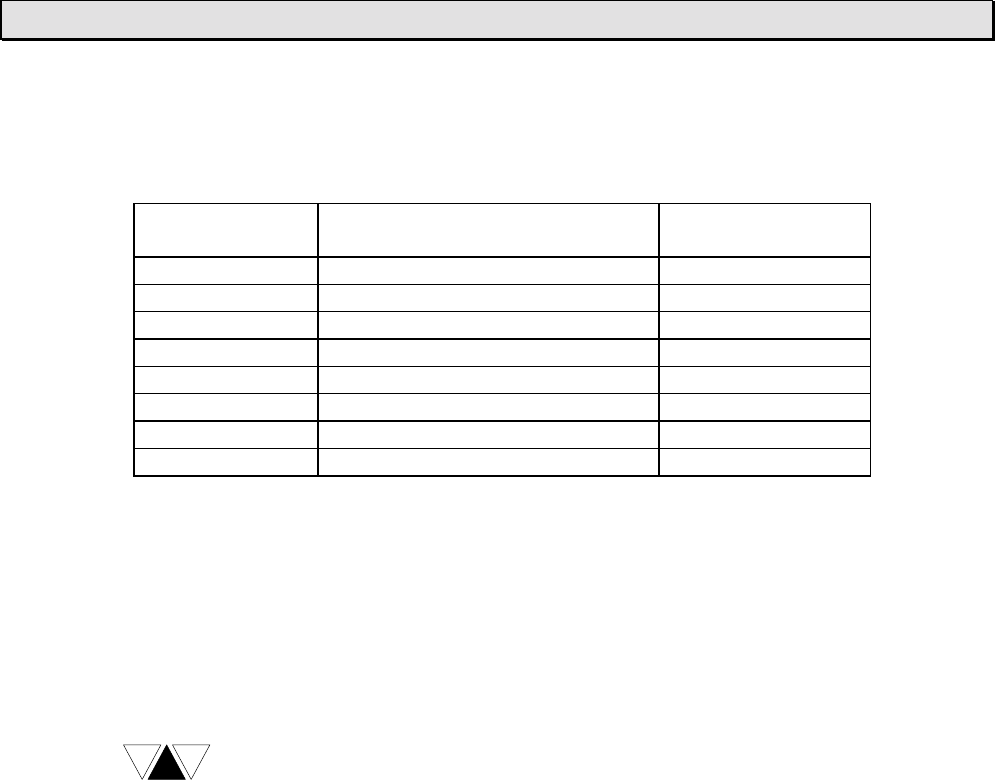
6F3B0253
68 T1-16S User’s Manual
5. Operating System Overview
Special register SW55 is used to specify the number of Data registers to be stored in
the EEPROM. The allowable setting value is 0 to 2048.
The table below shows the correspondence between the SW55 value and Data
registers saved in the EEPROM.
SW55 setting
value
Range of Data registers saved
in EEPROM
Remarks
0 None
1 D0000 only
2 D0000 to D0001
3 D0000 to D0002
::
2047 D0000 to D2046
2048 D0000 to D2047 Default value
Others D0000 to D2047 Regarded as 2048
When the EEPROM Write command is executed, the T1-16S checks the value of
SW55 and saves the Data registers into the EEPROM depending on the SW55 value.
The value of SW55 itself is also saved in the EEPROM.
At the initial load or the EEPROM Read command is executed, the T1-16S checks the
value for SW55 in the EEPROM and transfers the corresponding number of data to
the Data registers of the RAM.
(1) The EEPROM has the life limit for writing. It is 100,000 times. Pay
attention not to exceed the limit. If the number of execution of
EEPROM Write command exceeds 100,000 times, EEPROM alarm
flag (S007) comes ON.
(2) Even in RUN mode, the EEPROM Write command can be executed.
However, in this case, only the user program is written into the
EEPROM. (D register data and setting information are not saved.)
(3) The data in the EEPROM can also be read or written by using the
program instruction (FUN236 XFER instruction).
(4) When the EEPROM writing is executed by the XFER instruction in the
user program, T1-16S does not update the internal EEPROM write
counts. Therefore the EEPROM alarm flag (S007) will not correspond
to this operation. Pay attention to the life limit of the EEPROM.
NOTE



